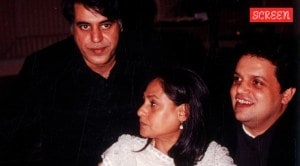Clinton says US won’t butt in, but leaves his calling card
New Delhi, March 22: William Jefferson Clinton virtually erased the vestiges of anti-Americanism from the heart of the Indian political cl...

New Delhi, March 22: William Jefferson Clinton virtually erased the vestiges of anti-Americanism from the heart of the Indian political class today, with an address to Parliament reaffirming “India’s right” to determine its own way in the world — with its nuclear weapons or without — and admitting that the US shared with New Delhi its “concerns” about Pakistan.
Mobbed by scores of former and sitting MPs at the end of the function, the all-American hero could barely make his way out of the Central Hall of Parliament this afternoon. Wearing a tricolour `angavastram’ on his shoulders, gifted by R Ramachandriah of Andhra Pradesh, Clinton reached out and shook their outstretched palms, one after another after another, beaming from ear to ear.
It was an awesome sight, a fitting end to a 48-hour visit to the capital, where he not only underlined a brand-new American understanding of New Delhi’s refusal to talk to Pakistan, but underscored the virtue of India’s democratic experiment in a region beset with contrary political systems.
“I share many of your government’s concerns about the course Paksitan is taking,” Clinton said during his address, frequently peppered with loud thumping of Central Hall’s venerable desks, adding, “Your disappointment that past overtures have not always met with success. Your outrage over recent violence. I know it is difficult to be a democracy bordered by nations whose governments reject democracy.”
The indirect reference to Pakistan, China and Myanmar seems to have warmed the cockles of the Indian establishment, which, nevertheless, cautiously awaits Clinton’s remarks in Pakistan and beyond. A senior government official pointed out that the US stand on non-proliferation issues, despite the evident bonhomie over the last couple of days, had not changed. Nor could New Delhi assume that the US had accepted the definition of the Line of Control in line with what had been laid down in the Shimla accord.
Clinton’s address to Parliament — the last time a special sitting was held was for Nelson Mandela in 1990 and before that for Mikhail Gorbachev in 1986 — was his last official engagement here before he left for Agra late afternoon. His courteous and respectful tone in the House, even on areas of disagreement with New Delhi — such as renewing the dialogue with Pakistan and the nuclear issue — was a remarkable, political lesson in the art of publicly managing differences.
“I also believe…that democracy is about dialogue. It does not have to be about friendship, but it is about building working relationships among people who differ…Engagement with adversaries is not the same thing as endorsement,” Clinton said.
It was a plea for renewing dialogue with a hostile neighbour — Pakistan — and Clinton reiterated that he hadn’t come to South Asia to mediate the Kashmir dispute.“Only India and Pakistan can work out the problems between them. And I will say the same thing to General Musharraf in Islamabad.
“But if outsiders cannot resolve this problem, I hope you will create the opportunity to do it yourselves, calling on the support of others who can help where possible, as American diplomacy did in urging the Pakistanis to go back behind the Line of Control in the Kargil isssue,” Clinton added.
Similarly, went the script for the US president’s remarks on non-proliferation. “Only India can know if it is truly safer today than before the tests. Only India can determine if it will benefit from expanding its nuclear and missile capabilities, if its neighbours respond by doing the same thing…These are questions others may ask, but only you can answer,” Clinton said.
His reiteration, again, that India’s “neighbours” possessed nuclear and missile capabilities, government sources here said, pointed not only to an acknowledgement of China and Pakistan’s status in this arena but also to an “understanding” that it was India’s right to determine its own future nuclear programme.
Nevertheless, the nuclear remarks were also packaged in a manner that did not detract from the US position that nuclear weapons, at least for non-nuclear club nations, were best done away with.
“Another danger we face is the spread of weapons of mass destruction to those who might have no reservations about using them…from South America to South Africa, nations are foreswearing these weapons. If India’s nuclear tests shook the world, India’s leadership for non-proliferation can certainly move the world,” Clinton added.
It was at this point that he entreated India to not only sign the CTBT, but join talks on fissile material control and strengthen export controls.



- 01
- 02
- 03
- 04
- 05




























